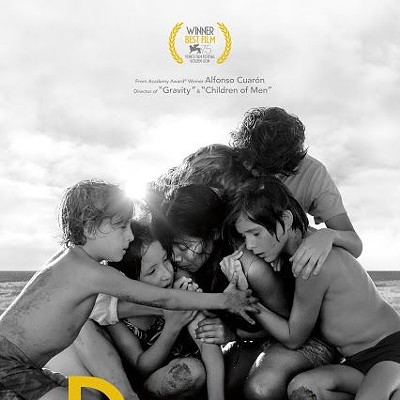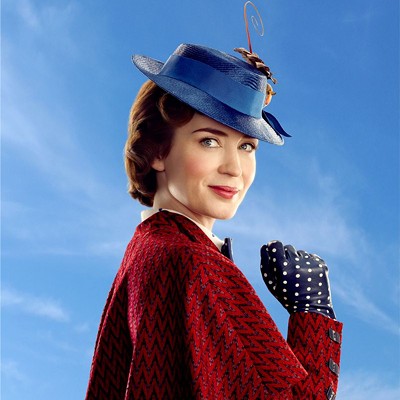BORAT: CULTURAL LEARNINGS OF AMERICA FOR MAKE BENEFIT GLORIOUS NATION OF KAZAKHSTAN They say that ignorance is bliss, but when it comes to Borat: Cultural Learnings of America for Make Benefit Glorious Nation of Kazakhstan, it just might prove to be a handicap. Although it’s not quite the most buzzed about movie of 2006, as Newsweek reported a few weeks ago (have they already forgotten about that migraine-inducer called Snakes On a Plane?), the media coverage has been substantial enough that Borat stands poised to possibly emerge as a breakout hit. Originally conceived as a character on HBO’s Da Ali G Show, Borat Sagdiyev is a Kazakh journalist who comes to America to make a documentary. There’s your plot. Yet what makes Borat different is that creator-star Sacha Baron Cohen, who plays the insensitive and language-mangling journalist, never breaks character, interviewing scores of ordinary Americans who genuinely believe that they’re being questioned by a foreign reporter for a nonfiction piece that would presumably remain confined to the backwaters of a country on the other side of the globe. This naiveté and belief in anonymity allow the participants to open up more freely to Borat, often garnering controversial results. And therein lies the dilemma. If Borat is staged in any way, then it’s a hot-and-cold “mockumentary” that pales next to the Christopher Guest titles (Best In Show, A Mighty Wind); despite many uproarious moments, it stretches its one-joke concept to the breaking point, and after about an hour, you’ll be satisfied. And indeed, there are a handful of sequences that feel staged: the Pamela Anderson interlude, for example, or a bit involving a flailing horse. Yet the filmmakers have loudly and repeatedly insisted that everything outside of Borat and his manager (played by Ken Davitian) is authentic in the picture: the situations, the interviewees, and the reactions of ordinary folks to Borat’s outrageous antics. If that’s the case, then Borat is borderline genius, an inspired piece of guerilla filmmaking that’s able to gauge the real pulse of America and unearth some unpleasant (if hardly surprising) truths. The movie uses fictional bigotry (Borat’s) to reveal the real-life prejudices that blot the U.S. landscape, and, in that regard, it emerges as an unexpected piece of sociopolitical muckraking. Cohen is fearless in his confrontations with various citizens across our land, whether he’s telling a crowd of rodeo yahoos that he supports our War on Terror and longs for the day when Bush will “drink the blood of every man, woman and child in Iraq,” or when he hands a dinner hostess a napkin containing his bodily refuse because he doesn’t grasp the functionality of the toilet and the principles of indoor plumbing. Borat is often convulsively, savagely funny (once seen, it’s impossible to block out the nude wrestling match), but beneath the scatology and mockery rests a knowingness about the manner in which societal prejudices can be hidden, diverted and even encouraged. In that regard, this is one smart movie.
A GOOD YEAR Moviegoers who condemn Shortbus as porn might want to take a look at A Good Year, which offers a different form of hedonistic pleasure. Set (and shot) in the south of France, it’s unabashed erotica for wanna-be world travelers, offering one orgasmic vision after another of the provincial countryside and its attendant vineyards, chateaus and lusty locals. Based on Peter Mayle’s novel, A Good Year marks a reunion between the Gladiator team of director Ridley Scott and star Russell Crowe. It’s slight stuff -- a throwback to the sort of yuppie-finds-his-soul flicks that ran rampant in the 1990s -- yet it’s not without its modest pleasures. Crowe plays Max Skinner, a ruthless London trader who lives only to make money -- lots of money. But when Max learns that his Uncle Henry (Albert Finney) has passed away at his chateau in Provence, he’s forced to take a short leave of absence in order to handle the paperwork. Matters become even more complicated with the sudden presence of two women: a young American (Abbie Cornish) who might be Uncle Henry’s illegitimate daughter and thus entitled to the estate, and a local restaurant owner (Marion Cotillard) who catches Max’s eye. Scott, used to overseeing weighty projects, tries to pump up this slender tale into something more meaningful: His tactic of choice is to bully us into always feeling something, which leads to an astonishing amount of clumsy comedy and overreaching sentiment. Crowe, on the same wavelength as his director, responds by oozing charm in every scene, a decision that makes it all the more difficult to accept the fact that his character is initially supposed to be a heartless profiteer.
BABEL An award winner at Cannes and an early favorite for Oscar enshrinement, Babel arrives courtesy of director Alejandro Gonzalez Inarritu and writer Guillermo Arriaga, the same team that previously gave us 21 Grams and Amores Perros. Like their past efforts, Babel is a gloom-and-doom dissection of society, whipping between various characters and their interconnected storylines. Certainly, this is the duo’s most ambitious undertaking, yet for all its scattered strengths, it’s also the least satisfying, hampered by a structure that feels schematic rather than organic. I have no doubt that Inarritu and Arriaga were sincere as they set about tackling the Big Issues in this latest film, but in this instance, their reach exceeds their grasp. Their main topic here is the lack of communication that exists between people. In one plot strand, a Moroccan goat herder (Mustapha Rachidi) buys a used rifle and gives it to his two sons with the order to shoot any jackals that threaten the herd. In a second storyline, an American couple (Brad Pitt and Cate Blanchett) on vacation are plunged into a nightmare when the wife is accidentally shot by one of the aforementioned young boys, who was merely trying to gauge the distance a bullet can travel. In another, the American couple’s two children are hauled over the U.S.-Mexico border by their nanny (Adriana Barraza), whose decision to attend her son’s wedding looks ill-informed once she experiences difficulty crossing back to our side. And in the final story, a deaf teenage girl (Rinko Kikuchi) in Tokyo grows increasingly frustrated as she’s unable to find any male who’s willing to provide her with love and compassion. The Tokyo storyline is the best one in the film, and it further benefits from the best performance (Kikuchi is smashing as the lonely teen). And while it initially seems to be the most removed from the other three sagas, it’s eventually revealed that the action of a supporting player in this section weighs heavily in the Moroccan chapters.
FLUSHED AWAY It’s a textbook Faustian example of selling one’s soul to the devil. Great Britain’s Aardman Animation, the studio behind the delightful Wallace & Gromit films, has always ignored the American modus operandi of churning out loud and obnoxious toon flicks by sticking to its vedy British guns and producing works that relied on clay animation rather than CGI and clarity instead of chaos. After beginning its partnership with Hollywood’s DreamWorks studio, Aardman stuck to its guns with the charming Chicken Run. Flushed Away, however, reveals that the devil is starting to collect his due. The story of a pet mouse who gets flushed down the toilet and ends up in an underground city populated by rats, frogs, slugs and other critters, the film exhibits the frenzied pace and overbearing characterizations that have become standard in U.S.-born-and-bred animated features. The voice casting (Hugh Jackman, Kate Winslet, Ian McKellen, for starters) rests somewhere between Pixar inspiration and everybody else’s laziness, but the story is strictly perfunctory -- and further hampered by the sort of puerile gags that have come to define Yankee toon flicks (lots of blows to the crotch in this one).
RUNNING WITH SCISSORS Heaven help us, this is one godawful movie. A grotesque adaptation of Augusten Burroughs’ best-selling memoir, Running With Scissors is alternately grating and boring, as deadly a combo as one could imagine sitting through for two unendurable hours. Young Joseph Cross plays the Augusten surrogate, a teenage lad saddled with a lunatic mother (Annette Bening) who’s convinced that she’s going to strike it rich as a writer some day. Once his parents divorce, Augusten is sent to live with Mom’s eccentric psychiatrist (Brian Cox) and his equally out-there brood: wife (Jill Clayburgh), daughters (Evan Rachel Wood and Gwyneth Paltrow) and adopted son (Joseph Fiennes). Writer-director Ryan Murphy displays no feeling for or understanding of these characters, and, as a result, their colorful behavior comes across as repellant rather than ingratiating. The cast labors mightily, but most of the performers are either mishandled or miscast. The primary exception is Alec Baldwin, whose understated work as Augusten’s alcoholic father, paired with his memorable supporting turns in other recent films (The Cooler, The Aviator, The Departed), suggests that directors ought to consider going back to handing him larger roles.
CATCH A FIRE The title’s a bit misleading, insofar as this well-meaning movie never really catches fire. Based on a true story that unfolded in the early 1980s, it centers on Patrick Chamusso (Derek Luke), a South African oil refinery foreman whose apolitical attitude allows him to largely fly under the radar when it comes to confrontations with the ruling white class. But after the members of an anti-apartheid organization sabotage the refinery, suspicion falls on the innocent Patrick, and he’s soon arrested and tortured under the supervision of Nic Vos (Tim Robbins), a key figure in the country’s homeland security division. Patrick withstands the abuse, but after his wife (Bonnie Henna) is similarly snatched and interrogated, something inside him snaps and he decides to enter the fray. Director Phillip Noyce is no stranger to helming gripping films set in turbulent times and divided lands, but working from an unexceptional screenplay by Shawn Slovo (daughter of one of the film’s characters), he’s unable to duplicate the vibrancy of The Quiet American or the pathos of Rabbit-Proof Fence -- we naturally feel for these ill-treated characters, but it’s more of a Pavlovian reaction to the on-screen brutalities rather than because of anything served up in Slovo’s surprisingly conventional script. Those seeking topicality might attempt to equate the manner in which the violent actions of the white ruling class turn peaceful blacks into freedom fighters with the way that the intrusive U.S. army is turning many peaceful Iraqis into terrorists, but it’s an awkward analogy at best.
THE PRESTIGE The Prestige, co-written and directed by the immensely talented Christopher Nolan (Batman Begins, Memento), is the third of this year’s releases centering around magicians (following Woody Allen’s Scoop and the Edward Norton sleeper hit The Illusionist), and it’s far and away the best. Teaming with his brother Jonathan to adapt Christopher Priest’s novel, Chris Nolan has crafted a dense and multilayered drama that explores his usual recurrent themes while simultaneously serving up a cracking good mystery yarn. Set in turn-of-the-century London, The Prestige casts Hugh Jackman as Robert Angier and Christian Bale as Alfred Borden, two aspiring magicians working under the tutelage of master showman Cutter (Michael Caine). Almost right from the start, it’s established that Angier is the more charismatic of the pair: gentle, romantic and extroverted enough to know how to grab an audience’s attention. The brooding Borden, by comparison, is more inwardly directed, and his devotion to his craft suggests that he’s willing to get his hands dirty and sacrifice anything to realize his dream of becoming a master magician. The movie isn’t simplistic enough to pit a “good” magician (Angier) against an “evil” one (Borden); instead, it recognizes the duality of each man’s nature, a theme that eventually expands to a startling degree.
FLAGS OF OUR FATHERS Clint Eastwood’s sober tribute to our fighting forces during World War II manages the tricky feat of honoring the past while also subtly deflating the attendant mythology that over time attaches itself like a barnacle to a ship side. It’s this strength of conviction that allows the film to toss aside some niggling aspects and earn its keep as a memorable war movie. Working from a script by William Broyles Jr. and Crash Oscar winner Paul Haggis (adapting James Bradley’s book), Eastwood focuses on the events surrounding the raising of the U.S. flag on Iwo Jima in 1945. The movie details how this single act, captured in a historic photograph, became a rallying point around which the military was able to energize an American nation weary of war. Publicity tours were staged with the active participation of the three surviving men who helped hoist the flag: sensitive Doc Bradley (Ryan Phillippe), outgoing Rene Gagnon (Jesse Bradford) and anguished Ira Hayes (Adam Beach). Eastwood and company view the tour as a necessary evil, a much-needed fundraiser that nevertheless leads the participating soldiers to feel increasingly uncomfortable donning the designation of “heroes” when so many of their friends have already died in combat.
MARIE ANTOINETTE The fall season’s premiere love-it-or-leave-it title, Marie Antoinette was booed by French scribes at the Cannes Film Festival before being rescued by American critics, the slight majority of whom have graced it with positive reviews. Yet despite its divisive nature, I’ve managed to come down in the middle: The movie, writer-director Sofia Coppola’s first since her magnificent Lost In Translation, is better than I had expected but not as good as I had hoped. Coppola’s intention was to create a teenager for our times, a girl who just wants to have fun even though her position in the French royal court demands so much more. It’s an interesting idea that’s only partially successful, largely because Coppola doesn’t go far enough. Where Marie Antoinette fares best is its examination of the royal life as a treadmill of constantly winding boredom; the scenes in which Marie, winningly played by Kirsten Dunst, is forced to succumb to the nonsensical rules and rituals of etiquette are poignant because they deny a child, that most impulsive of all creatures, the chance to experience life for herself.
MAN OF THE YEAR It’s junk like Man of the Year that makes me remember movie reviewing often isn’t just a job; it’s an adventure -- and I’m owed some serious combat pay. Merging the premises of Warren Beatty’s razor-sharp Bulworth, Kevin Kline’s decent Dave and Chris Rock’s flaccid Head of State, writer-director Barry Levinson imagines what would happen if an outspoken and compassionate comedian became president of the United States. Robin Williams plays Tom Dobbs, a Jon Stewart-like TV talk show host who, after joking that he should run for office, finds himself on the ballot in 13 states. It’s a decent premise for a piercing satire, but Levinson’s approach is so timid that it makes last spring’s soggy American Dreamz look as incendiary as a Michael Moore documentary by comparison. The main problem, of course, is Williams, who isn’t playing a fictional character running for president as much as he’s playing Robin Williams playing a fictional character running for president. In other words, it’s the same lazy performance we almost always get, with the actor groveling for laughs via his patented physical shtick and repertoire of stale jokes that were already passe around the time Roman emperors began chucking Christian standup comics to the lions.
THE DEPARTED At this point in his illustrious career, it’s hard to imagine Martin Scorsese accepting another filmmaker’s hand-me-downs. Yet in essence, that’s what’s taking place with The Departed, which isn’t an original screen story but rather a remake of a 2002 Hong Kong film titled Infernal Affairs. Working from a script by William Monahan, Scorsese has made a picture that’s more in line with such past mob morality tales as GoodFellas and Mean Streets than with his recent spate of ambitious (and Oscar-lunging) period epics like The Aviator and Gangs of New York. But while The Departed is a strong film, it’s by no means a match for any of those aforementioned titles. Set in Boston, this new take casts Jack Nicholson as Frank Costello, the crime lord with the foresight to make sure that one of his protégées, Colin Sullivan (Matt Damon), is placed in a position to be able to rise through the ranks of the Massachusetts State Police Department. Colin is eventually assigned to the special unit tasked with investigating Costello, an outfit run by the animated Captain Ellerby (Alec Baldwin). Ellerby trusts Colin, little suspecting that his right-hand man is actually the informant. Meanwhile, down the hall, the paternal Captain Queenan (Martin Sheen) and the blunt Sergeant Dignam (Mark Wahlberg) are just as determined as Ellerby to nail Costello. To that end, they assign Billy Costigan (Leonardo DiCaprio) to get his hands dirty enough to convince Costello that he’s a bona fide criminal and worth adding to his band of outlaws. The violence and vulgarity -- trademarks of this sort of Scorsese outing -- are pitched at operatic levels, and even taking the milieu into consideration, they occasionally verge on overkill. So, too, does the performance by Nicholson, who begins the film as a terrifying villain but winds down as a raving buffoon. The younger actors do a better job maintaining the appropriate levels of intensity. DiCaprio is coiled and edgy, Damon alternates between charismatic and creepy, and Wahlberg (stealing the film) somehow turns surlinessinto an endearing character trait.

























